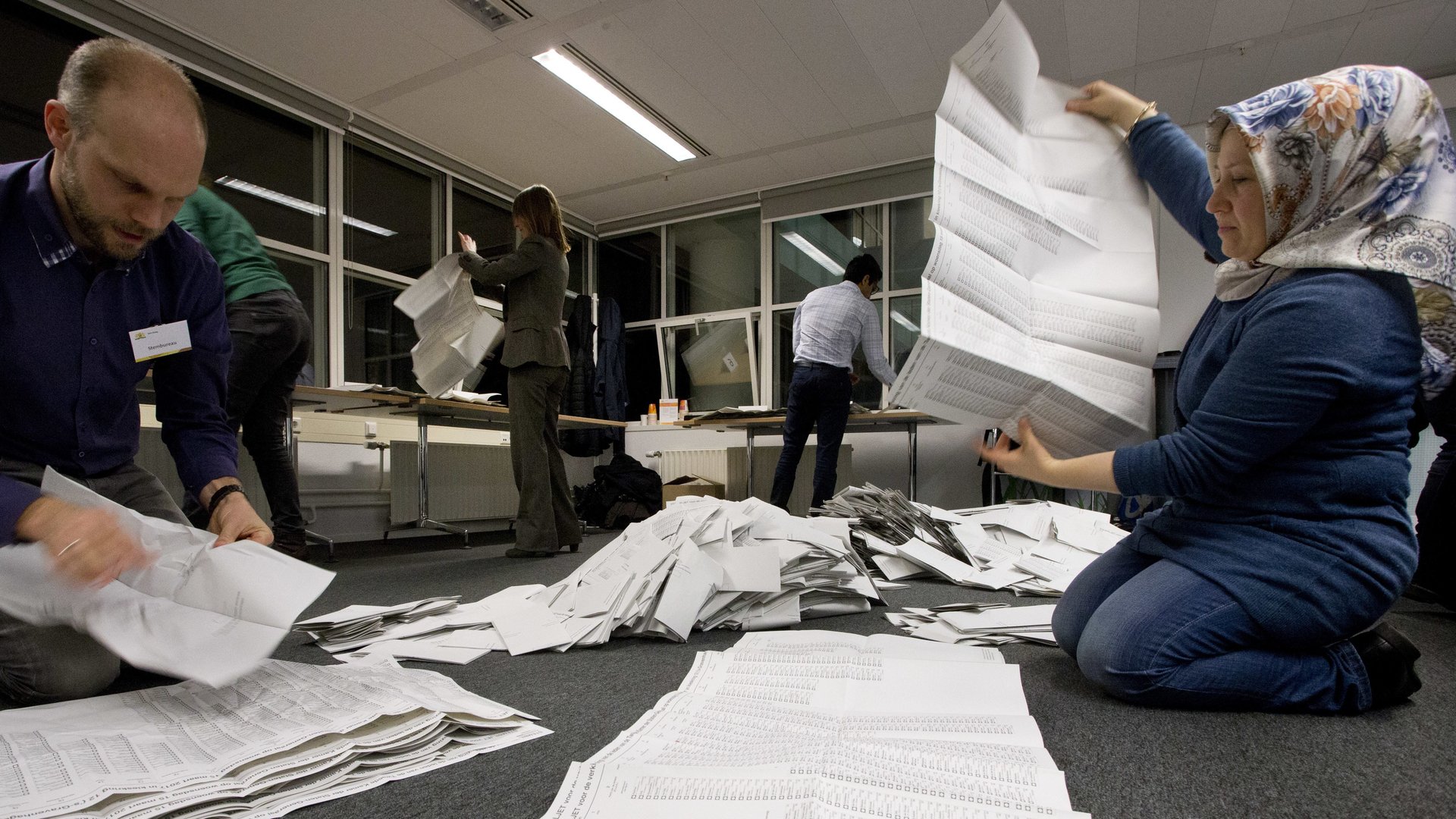One image perfectly captures why populists didn’t win the Dutch election
The idea of choosing between dozens of parties in a national election is daunting, especially for those unaccustomed to complex political systems. No wonder then that this photo of the massive Dutch paper ballot went viral in the height of yesterday’s much anticipated vote.


The idea of choosing between dozens of parties in a national election is daunting, especially for those unaccustomed to complex political systems. No wonder then that this photo of the massive Dutch paper ballot went viral in the height of yesterday’s much anticipated vote.
The image is more than comical—it’s symbolic. For all the fretting about the potential spread of populism across the US, Britain, and greater Europe, the visual shows the shortcomings of comparing the rise of populism in the US and Britain to other countries. The Dutch election, widely seen as a bellwether for upcoming votes across Europe, was never just about whether far-right politician Geert Wilders would win the most votes, because unlike in the US and Britain, the Netherlands is not a winner-takes-all system.
The face-off between incumbent prime minister Mark Rutte and Wilders was one of many Dutch electoral battles that have yet to be waged in a deeply fragmented, multi-party system. Despite a lot of fear-mongering about the far right’s grip over the Dutch electorate, no one candidate had a chance of winning the majority vote.
In the end, all but one party claimed victory.
Some European leaders were quick to suggest the Dutch results marked a halt to populism in Europe. Guy Verhofstadt, leader of the Alliance of Liberals and Democrats for Europe in the European parliament, claimed it shows why French presidential candidate and far right leader Marine Le Pen will lose the election.
But if there’s a lesson to draw from the Dutch vote, it’s to not jump to conclusions. Rem Korteweg, a senior research fellow at the think tank Centre for European Reform (CER), says the French and Dutch political systems aren’t really comparable. “If you want to talk about the populist tide, the tide is still there,” he says, but “there are definitely breakwaters you need to take into account,” including how “the Dutch political system works.”
For instance, because the French presidential election occurs in two rounds, much has been made of the prediction that far-right candidate Marine Le Pen will win the first round. But the hype about her dominance fails to account for the fact that the votes against her are divided among many candidates.
The second round of voting distinguishes the French from the Dutch system. In the absence of a more-than-50% vote for any one candidate, the two leading French candidates are left to compete in a second round, in which case polls suggest the final face-off will be between Le Pen and centrist candidate Emmanuel Macron. In theory, the votes against Le Pen would transfer to Macron, though that too is up for debate.
By contrast, in the Dutch system, the winner isn’t so concrete. Rutte’s win for the Party for Freedom and Democracy (VVD) leaves him with eight fewer seats than last year’s election. Meanwhile, Wilders’ Freedom Party (PVV), which came in at a distant second, increased his seats from 15 to 20 (though in the 2010 elections, he won 24 seats (paywall)). Rutte now has to build a coalition that incorporates (paywall) some of the hard-right sentiments popularized by Wilders.
At the other end of the spectrum, he’ll also have to contend with the election’s biggest winner, the GreenLeft, led by 30-year-old Jesse Klaver who has been dubbed the Dutch “Justin Trudeau.” The pro-European party for social equality gained 10 seats (for a total of 14) in parliament.